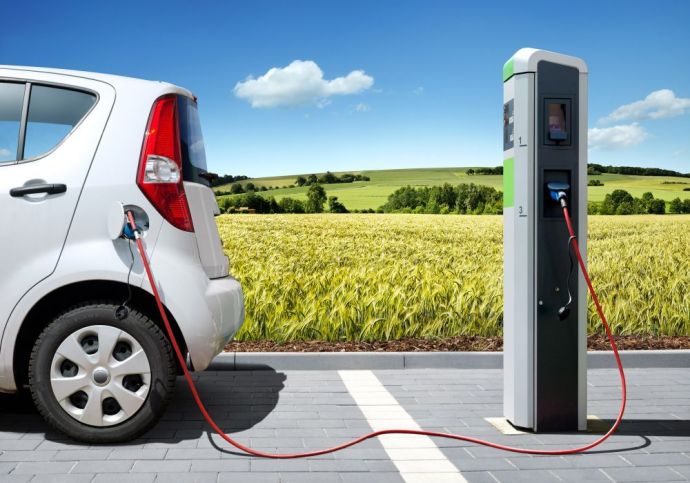
Manufacturers are not very confident about entering EV business due to lack of infrastructure & govt support. The latest to abandon this bandwagon is JSW Group, citing high risks involved, has scrapped its plans of entering the electric vehicles space.
India’s traditional fossil fuel market largely restricted to diesel and petrol came under fire on rising pollution, which created an opportunity for electric vehicles to meet future mobility needs, though it seems to have lost charm midway.
India had planned to achieve high penetration of electric vehicles and eventually at least 30% by 2030, backed by policies like Faster Adoption and Manufacturing of Electric (and Hybrid) vehicles or FAME and other measures, the government think tank Niti Ayog had said.
But all these efforts directed to oil and carbon savings with incentivized EV has dithered companies.
In little over-18 months, Sajjan Jindal-led JSW Ennergy has abandoned plan owing to high uncertainties associated with the business and to maintain focus in ‘steel-power’ sector.
One of the most serious player, it had earmarked Rs 6,500 crore for this venture and was in advanced talks with US-General Motors to acquire its Talegaon car making facility, near Pune. But now all these plans have fallen through, and referring the move as 'prudent risk management', the company said, "...Given higher than anticipated uncertainties associated with the EV business, the Board has, after careful evaluation, decided not to pursue this business and maintain capital cushion for growth opportunities in power and other related businesses.”
Its exit raises question over several companies looking at FAME policy that ended subsidy for private buyers of electric four-wheelers and may act as catalyst for several company's decision to pull the plug on their EV plan.
Despite the pitfalls, half a dozen pure electric green cars and SUV’s were expected to hit India in 2019. Mainly companies like Nissan, Hyundai, Tesla, Kia, Morris Garages or MG Motors have to introduce their electric badges. Chinese busmaker BYD is competing with Indian biggies like Tata Motors and Ashok Leyland in the commercial vehicle space and has rolled out electric buses.
MG recently unveiled its global pure electric SUV - the MG eZS, scheduled for launch across international markets soon. To be introduced in India by December this year, MG eZS should be one of the first global pure electric SUVs in the country.
“We hope by the time we launch the vehicle; the government would have announced the much-needed subsidies and incentives for the EVs under the recently announced FAME II scheme so that the people are encouraged to by the environment friendly mobility solutions. More details about the specifications and features of the eZS will be announced at a later stage,” said Rajeev Chaba, President & Managing Director, MG Motor India.
Leading carmaker Maruti Suzuki has tied up with its Japanese peer Toyota to introduce hybrids & electric car by 2020, while 300 new or significantly redesigned EVs are expected to debut globally till 2025 and more than half of these are expected to be in China and India.
According to industry experts, if FAME II and other measures - in public and private space - are successful, India could realise EV sales penetration of 30% of private cars, 70% of commercial cars, 40% buses and 80% of two and three-wheelers by 2030, as per a Niti Aayog document, prepared by US based Rocky Mountain Institute.
Extrapolating from the same, it added that the lifetime cumulative oil and carbon savings of all electric vehicles deployed through 2030 could generate cumulative savings of 846 million tonnes of CO2 over the total deployed vehicle's lifetime.
"Vehicles eligible under FAME II scheme can cumulatively save 5.4 million tonnes of oil equivalent over their lifetime worth Rs 17.2 thousand crore," it said.
Niti Aayog report suggested that the government should focus on a phased manufacturing plan to promote EVs, provide fiscal and non fiscal incentives for manufacturing of EVs and batteries.
However lack of infrastructure has proved to be the biggest obstacle for EV. There has been some Infrastructure push coming from electricity distributors Tata Power & Reliance and even Delhi becomes the first state in India to enshrine an electric vehicle policy with the aim of having 25% fleet by 2023, but lack of investment to create infrastructure has forced companies to avoid investments so far.
The Aayog report also suggested different government departments consider a bouquet of potential policies, such as congestion pricing, ZEV credits, low emission/exclusion zones, parking policies, etc. to drive adoption of EVs.
The FAME II scheme, notified by the union cabinet in February 2019, aims to accelerate India's commitment to a clean mobility future, with electrification of transportation as a primary focus area and finally reach targeted around 80 per cent in case of two-wheelers and 30 per cent for private cars, the report -- India's Electric Mobility Transformation: Progress to Date and Future Opportunities -- by the Niti Aayog and the Rocky Mountain Institute.


